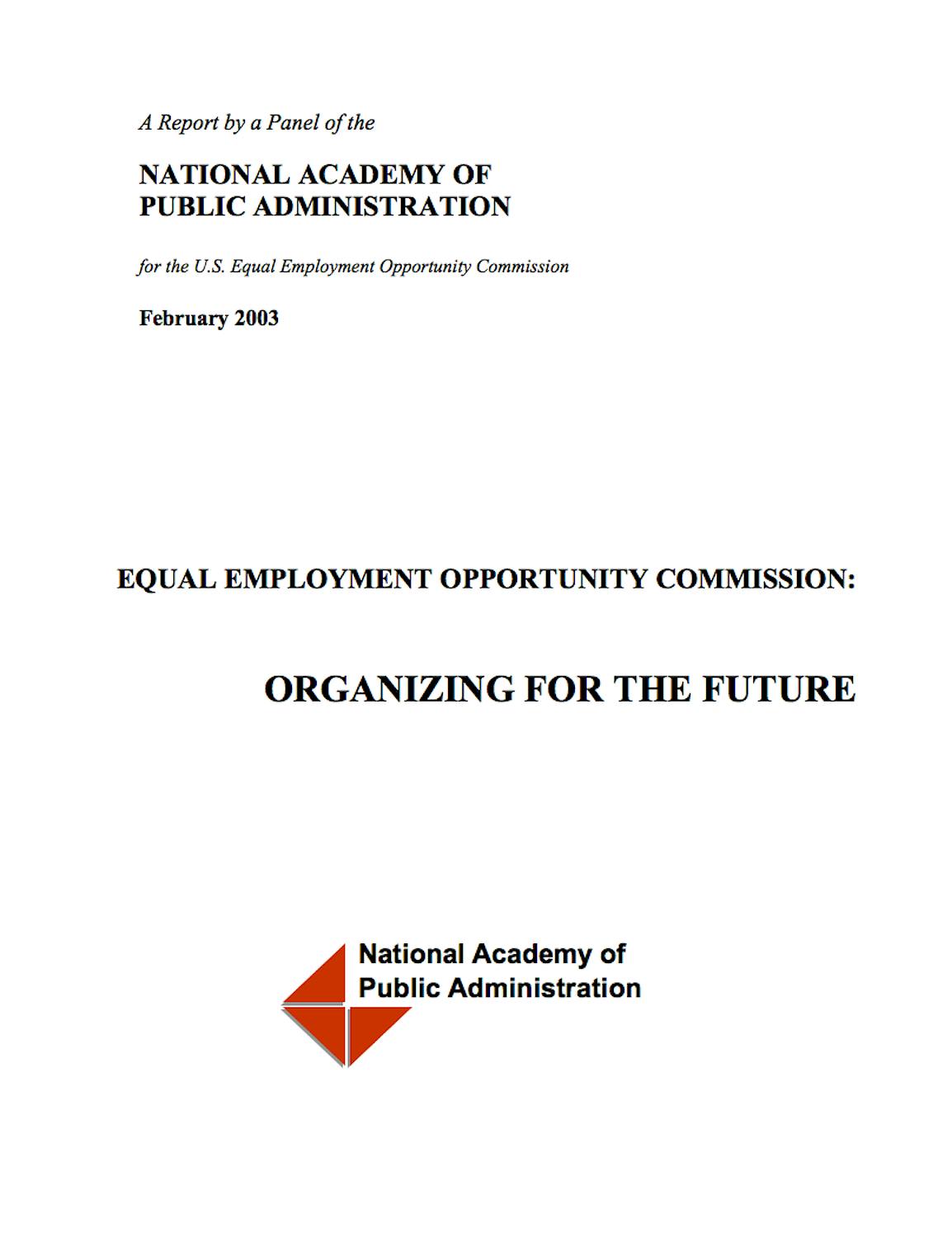
Equal Employment Opportunity Commission: Organization for the Future
The Equal Employment Opportunity Commission (EEOC) works to prevent discrimination from occurring in the workplace, eliminate discrimination that has occurred in the workplace and investigate and adjudicate allegations of such discrimination.
The EEOC serves every industry, every segment of the population, and every part of the country. Its workload nationwide and in its individual offices is affected by such things as the state of the economy, demographic characteristics of the workforce, the growing immigrant population of the nation, and the challenges of serving customers from diverse backgrounds and with varied English-speaking abilities.
The EEOC asked the National Academy to assist in preparing the restructuring plan and the strategic human capital plan required by the President’s Management Agenda and related Office of Management and Budget (OMB) and Office of Personnel Management (OPM) directives.
Click the button below to view the View Study Report.
View ReportKey Findings
The Academy Panel report contained a wide-ranging set of recommendations to address a number of interrelated issues of organizational structure, budget realignment, technology use, human capital management, and performance management. The Panel believed these changes are necessary to help lower costs, improve organizational and individual performance levels, and meet the other challenges facing the EEOC. The report also contained recommendations for implementing the substantive changes and for the communications strategy essential to successful organizational and cultural transformation.
Recommendations
To help the EEOC reach these goals, the current Chair has continued and refined strategies that placed significant emphasis on preventing discrimination and mediating cases. However, the EEOC is not yet organized to move most effectively in that direction. In addition, the Academy Panel found that the EEOC could take advantage of modern telecommunications technologies that would allow it to efficiently centralize much of its intake of private sector charge receipts, provide one-stop information about all services, trim its costs, and concurrently improve its services to individuals.
